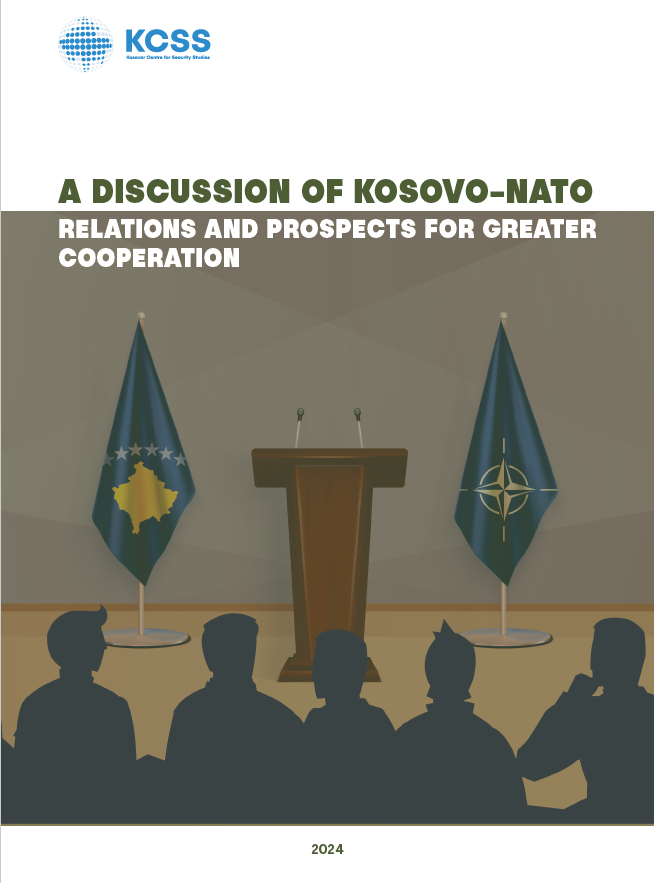26/06/2024

Kosovar Centre for Security Studies
Kosovar Centre for Security Studies
Leureta Lumi
Membership of Kosovo in the North Atlantic Treaty Organization (NATO) is regarded as a national interest across Kosovo’s political spectrum and receives substantial public support. According to the 2022 Security Barometer by the Kosovar Centre for Security Studies (KCSS), an overwhelming 92 percent of all citizens in Kosovo are in favor of joining NATO. This support is even more pronounced among the Kosovo Albanians, where the approval rate soars to 99.5 percent. This is the only objective in Kosovo that enjoys this level of public backing. Kosovo’s Security Strategy 2022-2027 states ‘The irreplaceable aim of the Republic of Kosovo is NATO membership and integration as the mechanism that provides long-term strategic security’.
NATO’s leading role in ending the 1999 war and averting a potential genocide in Kosovo is widely seen as a major reason behind the strong public support for the alliance. However, this sentiment has been reinforced by recent developments, such as the Russian invasion of Ukraine in February 2022, intensifying Kosovo’s appreciation for NATO membership. The urgency for Kosovo to join NATO is further heightened by the unresolved bilateral disputes with Serbia and the increasingly adversarial positions of Serbian President Vucic towards, as shown by a recent statement from him, which implies that on Kosovo, Serbia should learn from Azerbaijan, adding that: “They waited 27 years for special geopolitical circumstances”. The Banjska terrorist attack in September 2023, which is believed to have been orchestrated with the support of Serbian security institutions and in cooperation with Russia, reinforces the perception that Serbia sees a military solution to the “Kosovo problem”.
Although Kosovo benefits from NATO’s protection via the KFOR mission, NATO’s stance on Kosovo remains status-neutral, with no significant advancement in NATO-Kosovo political relations since 2016. This paper delves into these challenges and seeks to explore the obstacles Kosovo faces on its path to NATO membership. Accordingly, this paper includes an analysis of the current NATO-Kosovo relations, options for Kosovo to enhance these relations and overcome key challenges, including exploration of the Partnership for Peace and the Membership Action Plan (MAP), a review of NATO accession processes in Albania, Montenegro and North Macedonia, and concluding remarks with recommendations.